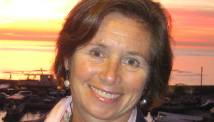NEW ORLEANS (AP) — Smiling, even laughing, at questions about a report linking him to a company that purports to make performance-enhancers, Baltimore Ravens linebacker Ray Lewis said Wednesday he "never, ever took" the stuff.
Lewis described himself as "agitated," not angry, that the story has become part of the Super Bowl-week prelude to Baltimore's game against the San Francisco 49ers on Sunday.
He added that he's certain his teammates won't be distracted by the report in Sports Illustrated. The magazine said Lewis sought help from a company that says its deer-antler spray and pills contain a banned product connected to human growth hormone. The 37-year-old Lewis is the leading tackler in the NFL postseason after returning from a torn right triceps that sidelined him for 10 games.
In a private conversation with Ravens head coach John Harbaugh, and later in the public setting of a news conference, Lewis distanced himself from Sports With Alternatives To Steroids (SWATS). SI reported that company owner Mitch Ross recorded a call with Lewis hours after the player hurt his arm in an October game against Dallas. According to the report, Lewis asked Ross to send him deer-antler spray and pills, along with other items made by the company.
"It's so funny of a story because I never, ever took what he says or whatever I was supposed to do. And it's just sad once again that someone can have this much attention on a stage this big, where the dreams are really real," Lewis said Wednesday, wearing his white No. 52 Ravens jersey, gray sweatpants and a black hat with the team's purple logo. "I don't need it. My teammates don't need it. The 49ers don't need it. Nobody needs it."
The magazine reported that when it spoke to Lewis for its story, he acknowledged asking Ross for "some more of the regular stuff" on the night of the injury and that he has been associated with the company "for a couple years."
Lewis' stance Wednesday was different.
"He told me there's nothing to it. ... He's told us in the past, he's told us now, that he's never taken any of that stuff, ever. And I believe Ray. I trust Ray completely. We have a relationship. I know this man. And I know what he's all about," Harbaugh said. "It's just too bad it has to be something that gets so much play."
Harbaugh didn't think his players would be bothered a bit by the subject this week, dismissively waving his left hand while saying: "As a football team, it's not even a factor for us."
Known for his frequent references to God and faith, 2001 Super Bowl MVP Lewis called the whole episode a "joke" and a "trick of the devil," adding that he told teammates: "Don't let people from the outside ever come and try to disturb what's inside."
Faced with a handful of questions about SWATS, and on-field topics, Lewis never had to deal with a single reference to a dark chapter in his life: He pleaded guilty to obstruction of justice in connection with a double murder after a Super Bowl party at an Atlanta nightclub in 2000.
"We all in here have a past. You know? But how many people actually dwell into it? You know? Nah, it ain't about your past. It's about your future," Lewis said in response to a question about the Ravens keeping focused on Sunday's game.
"And for me and my teammates, I promise you, we have a strong group of men that we don't bend too much," he said, raising a clenched right fist, "and we keep pushing forward. So it's not a distraction at all for us."
Asked about deer-antler spray, San Francisco's tight end Vernon Davis' take was, "I don't think Ray would take any substance."
Carlos Rogers, a 49ers cornerback, chuckled when asked about it and what effect the headlines could have on the Ravens.
"I don't think they'll get a distraction. I don't know what to make of that. I heard it was something that can't be detected. They can't test (for) it, anyway," Rogers said. "Him saying that he's never failed a test, he probably hasn't failed a test for what they test for."
___
Follow Howard Fendrich on Twitter at http://twitter.com/HowardFendrich
___
Online: http://pro32.ap.org/poll and http://twitter.com/AP_NFL

